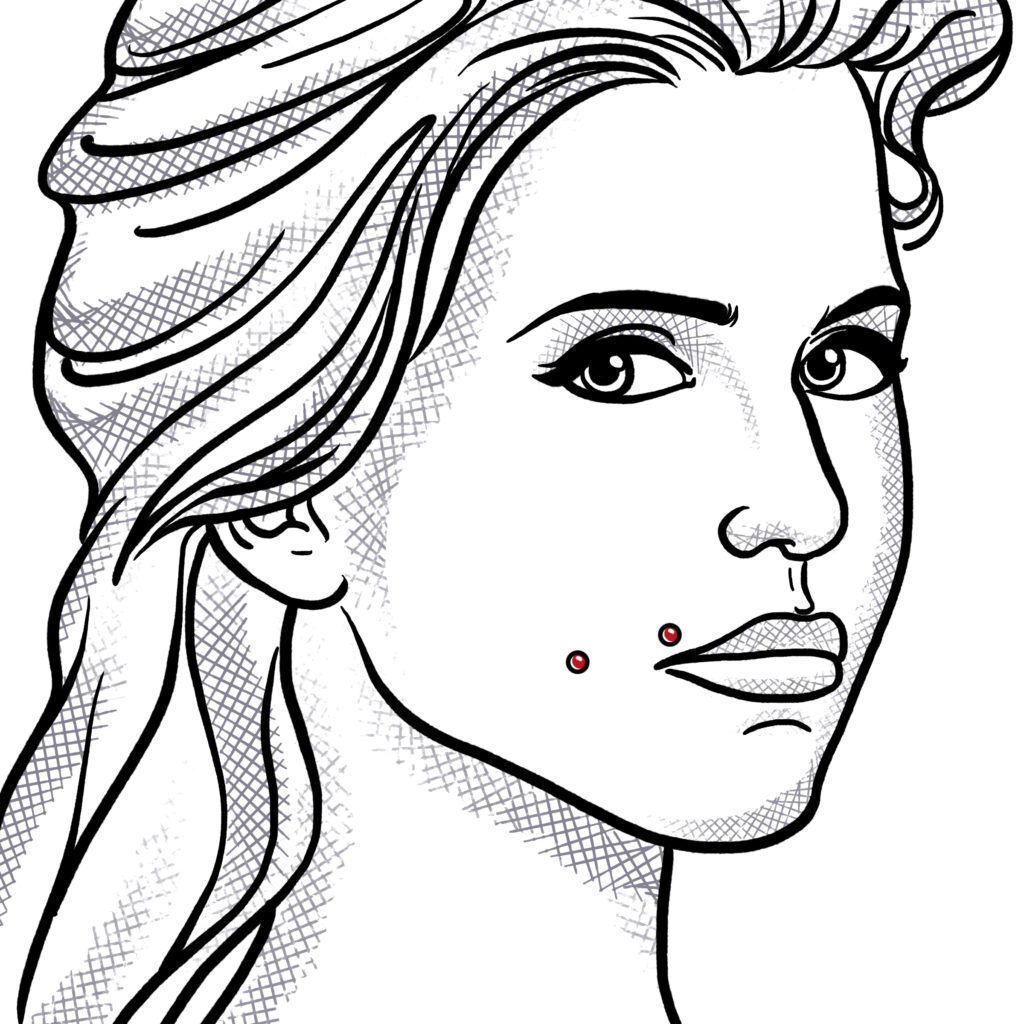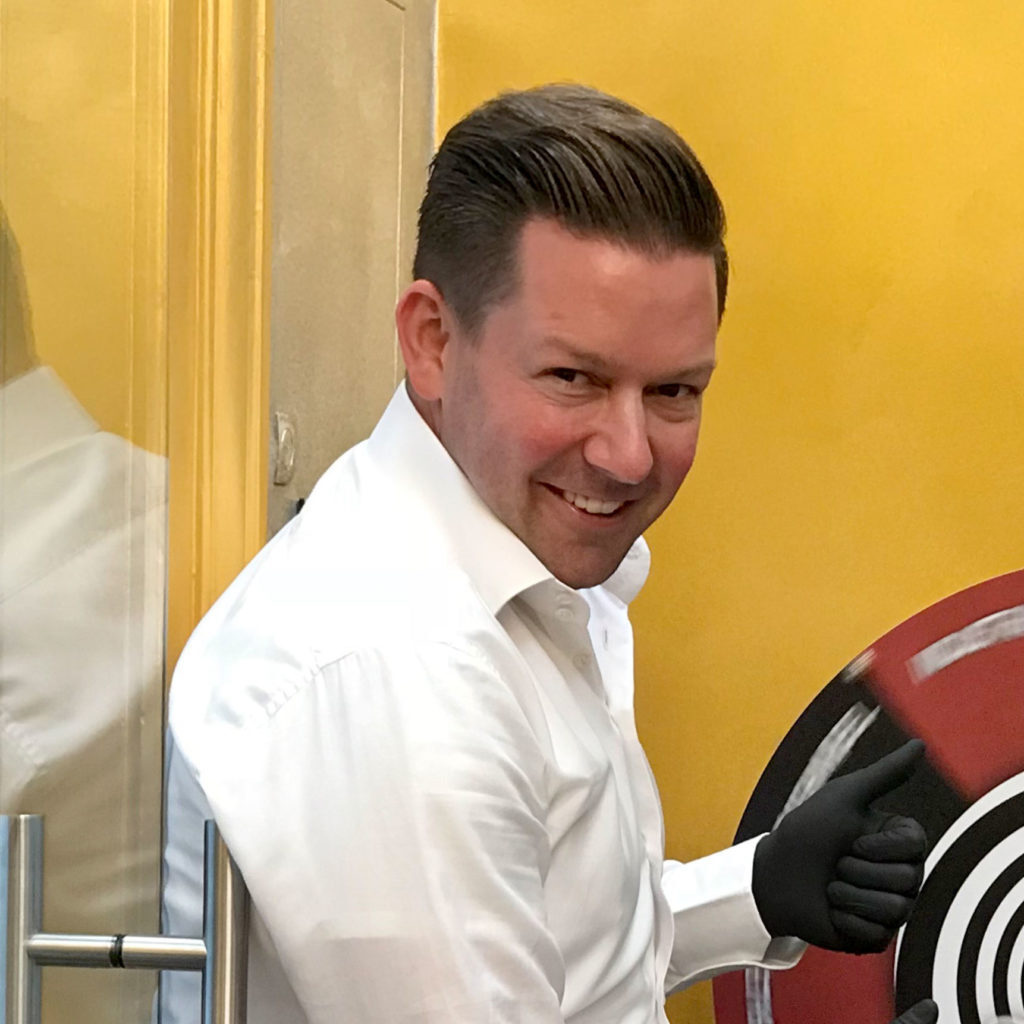Cheek Piercing

Stay away from cheek piercings. This is also a very rare form of piercing, and few piercers perform it, fortunately.
Stay away from cheek piercings. This is also a very rare form of piercing, and few piercers perform it, fortunately.
We are capable of executing a cheek piercing; the know-how is not the issue. The problem is that every experienced and professional piercer knows that cheeks INVARIABLY get inflamed, which leads to a never-ending vicious cycle.

Having the best piercer in the world won’t help, and neither will the best care, maintenance, nor the most fastidious customer. It is a very dangerous piercing, and the piercer MUST dissuade the customer from doing it.
Why?
There are some very important nerves (nervus facialis), veins and blood vessels (a large facial artery), and muscles which run through the cheek. The smallest injury is extremely risky and often leads to irreparable damage.
Whereas the risk of sepsis (blood poisoning) can be excluded for all other forms of piercings (in my European experience) when done by a professional piercer, with a cheek piercing this risk is very high and many customers have barely avoided cases of sepsis in the past.
If sepsis or facial paralysis occurs, it usually results in a stay at the hospital.
A guaranteed side effect is a permanent and irreversible indentation (recess) in the cheek. As long as the jewelry is inserted, it resembles a dimple (and that is why reckless customers do it despite all of the risks mentioned above), but it will never be a dimple since the moment the jewelry is taken out, it leaves a small hole and a dent in the face which ends up looking more like a scar than anything else.
Not to mention the damage caused to the teeth by the simple act of chewing. It is best to heed the advice of dentists in this case, who also advise against it.
However, the fact that dentists also advise against getting labrets, toungue or lip frenulum piercings is not something I agree with; in fact, dentists confirm that these kinds of piercings pose no problems provided the right care and maintenance is applied and the right jewelry is selected.
Those who still want their cheek pierced will most probably have to resort to an unprofessional studio who will either not be aware of the risks involved, or will simply not care. In this case the lure of money will outweigh the interests of the customer.
Ultimately these customers end up going to a professional piercer (after being turned away by an incompetent one) who will be very familiar with this issue.
„But I have my heart set on a cheek piercing”. Well, here is an alternative:
A dermal anchor in the cheek.
This implant in the cheek looks better, poses none of the problems mentioned above, and leaves a scar that is barely visible. The only downside is that although implants can last for a few years, they do not last forever. You can find details about implants/dermal anchors here as well.
Healing and care:
A dermal anchor cheek piercing can take between 3 and 5 months to heal completely, rarely longer. Like other external piercings, in the first three weeks it should be cleaned with ProntoLind spray twice a day, and then coated with ProntoLind gel. It is important to wash your hands before touching the pierced area and the jewelry itself. Disinfectant solutions containing alcohol or chlorine should be avoided.
Stay away from cheek piercings. This is also a very rare form of piercing, and few piercers perform it, fortunately.
Marc
and Piercer
Online reservation for the piercing of your choice
More than 40.000 hiqh-quality piercings and tools.



